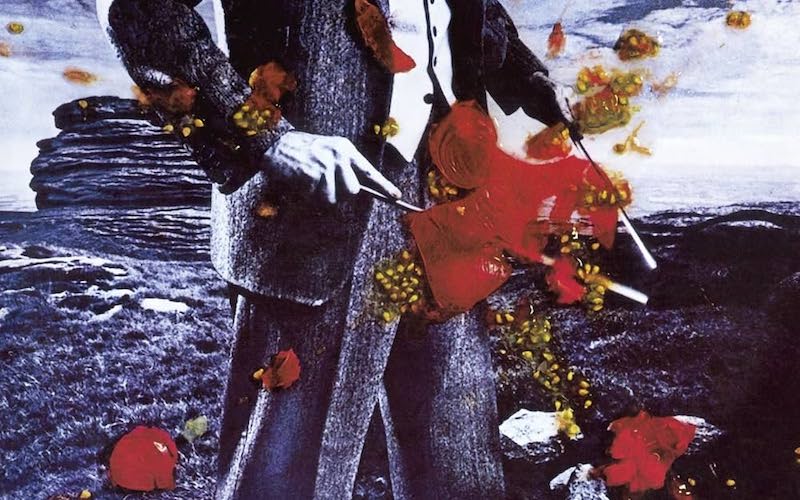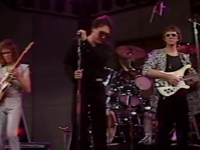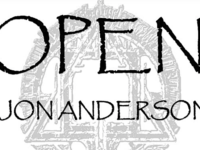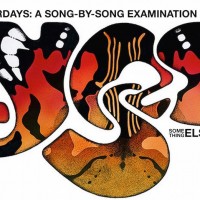
Tormato was Yes’ ninth studio album and the last of the main sequence featuring the classic line-up. The LP also signaled a change of fortune.
Coming a year after the highly regarded Going For the One album, Tormato continued the trend of more direct and accessible Yes songs. Sessions took place over a nine-month period in which it became clear that all was not quite right.
Engineer and coproducer Eddie Offord came and quickly went, leaving a majority of the engineering to Geoff Young and Nigel Luby at Advision studios in London. The results went platinum, reaching the Top 10 in both America and the U.K. Still, Tormato lacks the sonic sheen and clarity of many of Yes’ finest moments. Perhaps the band was influenced by the advent of punk and new wave music, but the almost dull recording did little to bring to life these compositions.
Can Tormato be saved? If it can, the pathway just might be through its deep cuts. Let’s dive into a handful of lesser-known songs from the album, which arrived on Sept. 20, 1978:
‘MADRIGAL’
This Jon Anderson / Rick Wakeman composition initially seems to be an oddity among oddities.
Musically, “Madrigal” is built on a synth-like turn on harpsichord from Wakeman. Anderson’s lyrics are mystical, yet combine noticeable outer space themes. Steve Howe provides a solid foundation with his always-tasteful electric and acoustic guitar, but it’s Wakeman who moves the song along.
Just when the song builds, however, it’s over. “Madrigal” may be the only track on Tormato which ends too soon. – Preston Frazier
‘ONWARD’
Some moments are etched on our musical memories. At the risk of attracting derision, one of these crucial experiences for me was hearing Tormato for the first time. It was lent to me by a friend alongside the recently released 1983 pop-prog classic, 90125. I instantly fell in love with both albums and started to collect everything I could find by the band.
Fast forward to 2016 and I witnessed another deeply affecting musical moment in Symphony Hall, Birmingham, U.K. A cream, Rickenbacker bass guitar sat alone on stage, picked out by a single spotlight while a video slideshow of images of the master Chris Squire played on the screen and the opening notes of “Onward” emerged from the speakers. The emotion was still raw – as for all fans, it remains – over the loss of the keeper of the Yes flame.
This experience only served to remind me of how much I love “Onward.” As Tormato was my introduction to Yes’ progressive music, it has become so deeply ingrained in me that I can’t hear the imperfections that others tell me are there but, in any case, I do believe that “Onward” is a sublime, classic song.
The Chris Squire composition contains a wonderful combination of spiky Steve Howe picking against mellow bass chords and patterns, topped off by Jon Anderson’s floating, ethereal vocal line. This contrasting texture is a hallmark of the best Yes music. Strings add an extra layer and the harmony vocals between Anderson and Squire are simply lovely.
The lyrics are archetypal Yes, and what tops it all off for me is the achingly beautiful French horn solo, accompanied by interweaving strings. The horn part then creates an exquisite tapestry against the other elements and, even though this is a relatively short Yes song at just over four minutes, it encapsulates for me Yes’ wonderful, life-affirming quality.
If you have written off Tormato by now, do go back and listen to “Onward,” a moment of tranquillity and beauty in the midst of our hectic lives. Listen and pick through your own musical memories, especially those you have of our lost hero, the incomparable Chris Squire. – Kevin Mulryne
‘ON THE SILENT WINGS OF FREEDOM’
It seems that all the musicians involved in the creation of Tormato agree the album could have been great. Rick Wakeman said that it should have been on a par with the preceding masterwork, Going For the One, and there are tales of the record company refusing to let Yes return to the studio to finish it off properly – insisting that it had to be released as it was. Apparently, the decision to self-produce the record was a mistake and led to too many hands on the control room faders, according to Chris Squire.
However, another song which I think did work exceptionally well was the final one, “On the Silent Wings of Freedom” – although it was perhaps even better in the live recordings I have heard from the “Tourmato,” which was famously presented in the round.
From the moment the bass and jazzy drumming kick-off, this song grabs me by the throat. Squire was always able to do that to me, right from the first riff of “Beyond and Before” which opens the band’s eponymous debut. As the keyboards and then guitar creep in, it sounds like something’s coming – and it is. It’s very unusual to have this kind of lead bass solo as the introduction to a piece, but the effect works wonderfully well.
Steve Howe and Rick Wakeman fly around guitar and keys, and Alan White’s drumming is some of the fastest and most furious ever. Finally, Howe winds up and up to Jon Anderson’s rapier-like entry, piercing the texture with an explorative line. Plenty of spacey, mystical lyrics are delivered with poise and the music turns a bit more rocky for a time. I defy you to be unmoved by the swing back into the quasi-verse with its broken-down fragmentary feel: it grooves, it sends shivers down the spine with the culmination of all the album’s preceding weird and wondrous instrumental techniques.
Who else but Squire could get away with that harmonized bass sound? Who else but Yes could get away with the crazy arrangement, throwing everything including the kitchen sink into the mix? Vocal harmonies and insane changes of tempos and feel all vie for our attention, and then there’s the church bell. Well, why not? Wakeman gets to show off his spritely fingerwork before a triumphant and joyful finale punctuated by more odd guitar work and synth runs which may or may not contain a couple of mistakes. Maybe the idea was to redo these in the studio.
Another case of aural whiplash afflicts me as the abrupt and tumultuous ending throws me unceremoniously from the top of a vast, musical mountain. I’m emotionally drained and buzzing – exactly as I want to be at the end of a Yes workout.
I know a lot of fans will disagree with me but I believe “On the Silent Wings of Freedom” is a Yes prog classic, on par with a lot of the others. It isn’t “Awaken” but it is a huge amount of spine-tingly fun. Re-live it, if you dare. – Kevin Mulryne
‘SOME ARE BORN’
One of the pleasures of Yes fandom is discovering – or rediscovering – lost or previously unheard gems. Although poorly mixed, Tormato actually included many treasures and the bonus songs released on 2004’s expanded edition complete the picture of an album that could have been much better.
Among the tracks worth seeking out is “Some Are Born.” Composed by Jon Anderson, the song features a solid band arrangement as each member propels the music forward. Steve Howe’s opening electric guitar sounds restrained but fitting. Rick Wakeman’s keyboards create an unintrusive layer of color, while Chris Squire adds distinctive bass lines.
Jon Anderson’s vocals are a little rough, confirming that this is a demo, and Alan White’s drum parts do not seem fully fleshed out. Still, the mid-song breakdown points to the possibilities of a long solo section. Perhaps if “Some Are Born” was further fleshed out, it would have been one of the highlights of Tormato. Yet, even as a demo, the song is still intriguing.
Lyrically, Anderson seems to be taking a more direct approach than usual. That could be why Anderson decided to include “Some Are Born” on his 1980 release, Song of Seven.
In that context, the music became more MOR and less impactful. A mid-song saxophone solo further distracted from what was once a solid effort from Yes. I guess, at the time, this was what was in fashion. – Preston Frazier
‘YOU CAN BE SAVED’
“You Can Be Saved” may not be the best composition by Yes bass maestro Chris Squire, but it deserved to have been completed.
The song, later found on the extended deluxe edition of Tormato, is only of demo quality. But it has solid melodic underpinnings, a hook and seems to have a vocal structure that would have suited Squire and Yes frontman Jon Anderson.
“You Can Be Saved” uses synthesizers, presumably by Rick Wakeman, and Squire’s bass and bass pedals as the main foundation. One can almost hear space for Steve Howe’s Les Paul Jr. guitar, as well as a 3/4 time drum pattern from Alan White. Anderson and Squire’s vocals, while tentative, serve as a good guide for a finished product.
It’s unclear why this song wasn’t finished for this album or added to a future Yes, Conspiracy or Chris Squire Experience project. It certainly might have helped save Tormato. – Preston Frazier




